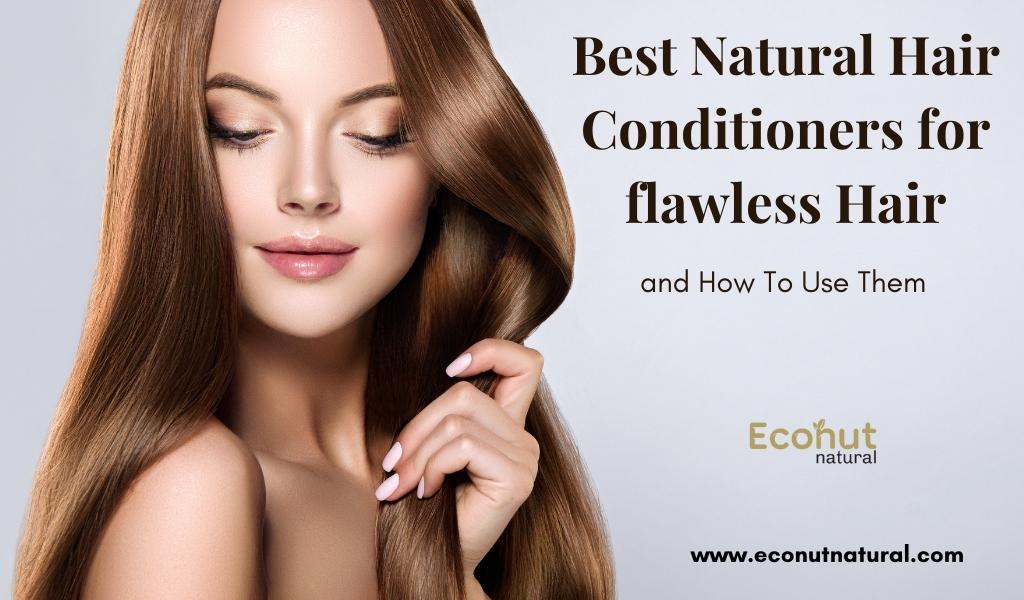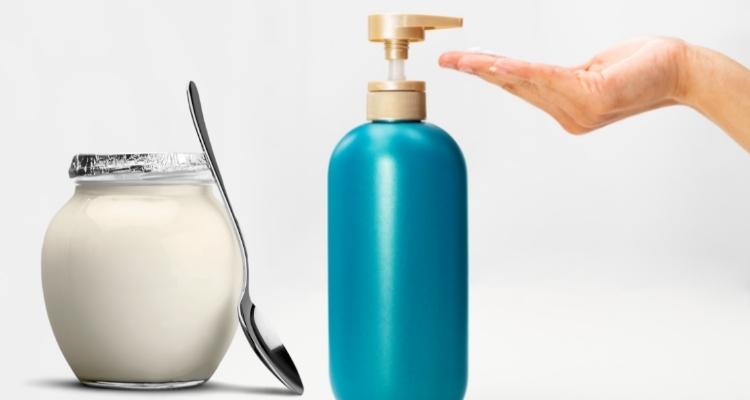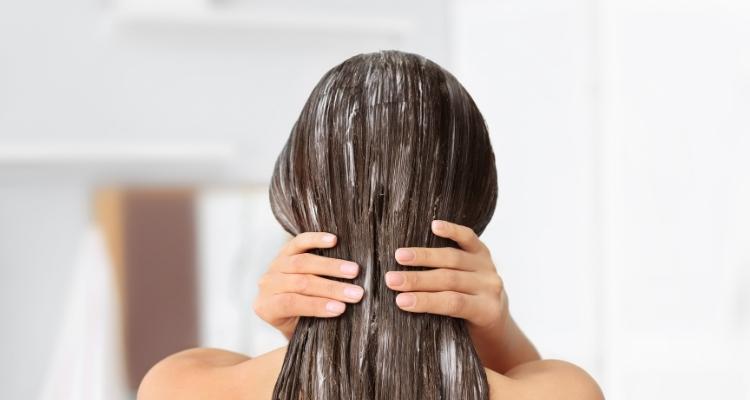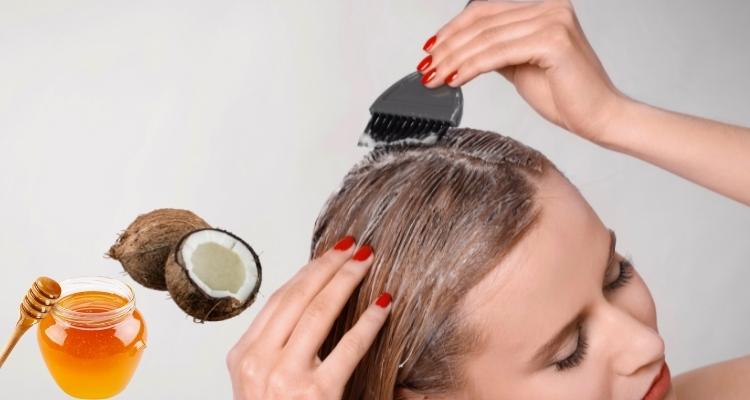Conditioning is a method of keeping your hair moisturized and making it smooth, velvety, and frizz-free. The greatest conditioners for hair are homemade Natural Hair Conditioners. But, using chemical-laden conditioners on your hair might be harmful in the long term.
- Dry, frizzy, and rough hair requires regular care, which involves oiling, washing, and conditioning it until it is ready to leave.
- People with unmanageable frizz, unnecessary texture, split ends, and rough hair should use an excellent conditioner.
Benefits of conditioning your hair
There are several advantages to making your own hair conditioners. This deep conditioning treatment provides your hair with the extra nutrients it requires to combat the free radical damage it encounters on a regular basis. Here are a few advantages:
These DIY hair conditioners increase the hydrophobicity of the hair strand.
- Smoothes and makes hair simpler to maintain
- Revitalizes dry, dull, and damaged hair
- Combats frizz and makes hair shinier
- Hair conditioners produced at home minimize friction between hair strands.
All-natural hair conditioners are fantastic and provide the required results for your hair. However, keep this pro tip in mind to get the most out of them. To open the hair follicles, rinse your hair with warm water first. This allows these hair conditioning treatments to penetrate and benefit more effectively. These, unlike drugstore conditioners, can be used on the scalp. Make the last rinse cold water to close the cuticles that you opened earlier and to maintain the nutrients that you just injected into the strands.
Overall, they assist to revitalize hair, sanitizing the scalp, and strengthening the hair shafts like nothing else. Natural components such as egg, banana, aloe vera, and yoghurt perform as great conditioners, eliminating the need for synthetic ones. You can simply make your own natural conditioner at home; here are some of the best homemade natural hair conditioners.
1. Egg and Vinegar Conditioner

To prepare this hair conditioner, all you need are eggs, olive oil, honey, vinegar, and lemon juice. Whisk together two to three eggs, a tablespoon of vinegar, and two tablespoons of lemon juice. Combine thoroughly. Add one and a half teaspoons olive oil and one tablespoon honey. In a blender, combine all of the ingredients to produce a thick paste. Apply the paste to the tips of your hair and keep it on for around 10-15 minutes before washing with water. An egg is a great conditioner that adds luster to your hair. Olive oil is a fantastic elixir for strengthening your hair. Honey keeps your hair nourished, and vinegar is responsible for hair loss treatment. As a result, you may use them on a daily basis to make your locks much stronger and healthier.
2. Coconut oil and honey conditioner
1 tablespoon coconut oil, 1 tablespoon honey, 1 tablespoon lemon juice, 2 tablespoons curd, and 1 teaspoon rose water Combine all of them and apply to your shampooed hair. Allow for 10-15 minutes before rinsing with running water. Coconut oil not only makes your hair silky and shiny but also helps it grow longer and thicker. Coconut oil’s vital minerals and fatty acids nourish the scalp wonderfully.
3. Banana and Milk Conditioner
One banana, three teaspoons honey, three tablespoons milk, three tablespoons olive oil, and one egg Make a paste with all of these components. Apply the paste to your hair and allow it on for 15-30 minutes before washing it off. Banana is one of the greatest hair conditioners for hair damage and works wonderfully for folks who have rough and frizzy hair.

4. Apple cider vinegar conditioner
In a bowl, combine two teaspoons of apple cider vinegar, one tablespoon of honey, and two cups of water. Combine all of the ingredients in a large mixing bowl. Pour this solution on your hair tips after shampooing; avoid getting it on your scalp. There is no need to rinse it anymore. The use of water is required to dilute the vinegar. ACV’s acetic acid helps to smooth your hair.
5. Yoghurt Natural Hair Conditioner
In a separate dish, beat an egg. Add about six tablespoons of yoghurt and thoroughly combine the ingredients. Cover your hair with the mixture and massage it in. Allow it to sit for around 15-30 minutes before washing it off with warm water. Yoghurt is a simple option because of its protein content and lactic acid, which helps cleanse your scalp. Yoghurt contains lactic acid, which aids in scalp cleansing.
6. Aloe Vera Natural Hair Conditioner
In a mixing bowl, combine one tablespoon of lemon juice and at least four tablespoons of Aloe Vera gel. Wait five minutes after applying it to your shampooed hair. Remove it with lukewarm water. Aloe Vera is supposed to encourage hair development and provide gloss. It aids in restoring the pH balance of the hair. You can adjust the dimensions based on the length of your locks. To achieve the finest effects, use these hair conditioners on a daily basis.

How to Use Hair Conditioner
Conditioner is typically used as the second stage in the hair washing process. While shampoo is designed to remove perspiration, dead skin cells, and hair products, conditioner softens and makes hair simpler to maintain. It also shields the hair shafts from injury.
Most shampoos include chemicals that are harsh on the hair follicles. Furthermore, freshly washed hair can be dry, lifeless, and difficult to manage. Natural Hair Conditioners contain fatty alcohols, humectants, and oils that soften and stretch hair. Some include protein to temporarily bind split ends, while others contain thickening chemicals to make the hair appear fuller.
Because dry, damaged hair has a negative charge, it can become static. Conditioning chemicals contain a positive charge, so they adhere to the hair and reduce static electricity. It is critical to choose the correct conditioner for your hair and skin type while shopping for conditioner. Different formulas provide distinct advantages and may have different negative effects. The best option is to stick to the natural conditioners on the market. This is how you apply conditioner.
How to apply hair conditioner
To condition your hair, follow these steps:
- Shampoo your hair in the shower. Rinse off all of the shampoos.
- Apply the appropriate amount of conditioner on the bottle, usually about the size of a quarter.
- Apply evenly to the ends of your hair. Spread lengthy hair from the chin level down. Apply no conditioner to your scalp.
- Work the conditioner into the ends of your hair with your fingers or a wide-tooth comb.
- Follow the label’s recommendations and leave it on your hair for a few seconds. This usually takes 1 minute.
- Rinse the conditioner well.
How to use a leave-in conditioner
As the name suggests, the leave-in conditioner is designed to be used without being washed out. It’s lighter than a regular conditioner since it’s manufactured with slightly different components. Typically, a leave-in conditioner is used as a place of shower conditioner. Most individuals don’t need to utilize both, but you can.
According to the manufacturers, a leave-in conditioner may encourage healthy hair development by leaving the product on your hair longer, and it may also provide a heat protection barrier before you blow-dry. Natural or textured hair may benefit from the added hydration provided by a leave-in conditioner.
To apply leave-in hair conditioner, follow these steps:
- After a shower, gently towel-dry your hair to eliminate excess water.
- Apply leave-in conditioner as directed on the bottle.
- Comb your hair gently with your fingers or a wide-tooth comb. Avoid using the crown of your head.
- Allow your hair to air-dry or style as usual. You may also use it before going to bed.
How to use a deep conditioner
Deep conditioner is helpful for hair that has been bleached, dyed, permed or fashioned with hot tools on a regular basis. These methods can cause further harm to hair roots.
A deep conditioner should only be used once a week. Deep conditioner application:
- Check the label to see if your hair should be damp or dry when you apply it.
- Coat the ends of your hair with conditioner.
- Leave it on for the duration stated on the product label, which might range from 10 to 30 minutes.
- Rinse the conditioner out.
Who should use Conditioner?
Anyone who washes their hair should most likely use conditioner as well. Shampoo eliminates sebum, the natural conditioner produced by your scalp. Natural Hair Conditioners should be used on a regular basis on dry hair, as well as on hair that is routinely processed with hot tools, permed, or coloured.
Even if you don’t blow-dry or curl your hair, tugging it back in headbands and ponytails can cause harm. This regular depletion can damage hair strands over time, causing hair to become frizzy and lifeless.
Choosing the right conditioner for your hair
Consider your hair type and style habits before selecting a conditioner. Different components will be required to treat hair of varying textures. And if you blow-dry or colour your hair frequently, it will require more moisture.
Colour treated hair
Your hair will have increased wear and tear if it has been bleached, dyed, or permed. Look for colour-treated hair shampoo and conditioner. You can also get advice from your salon.
Textured hair
Some people’s hair shafts are thicker than others. If this is the case, you should opt for a stronger conditioner that will better repair and protect your hair.
Curly hair
Curly hair is prone to frizz and dryness. With curly hair, you may need to be extra careful about distributing conditioner evenly around your head. After applying conditioner, keep a wide-tooth comb in the shower and run it through your hair.

How to condition hair with essential oils
Essential oils like Coconut oil, as well as almond, castor oil, avocado oil, and jojoba oils, are popular hair conditioners. Many of them are risk-free and worth a go if you want something more natural. The advantage is reduced exposure to chemicals such as colours and smell. As a deep conditioner, oils may be the finest option.
- Use one oil for about a week to observe how your hair reacts.
- Read labels carefully to ensure you are getting 100 per cent pure oil.
There are several types of Natural Hair Conditioners and applications for them. Make your own conditioner to meet your specific requirements. Though it may appear to be a purely cosmetic treatment, all people should use conditioner on a regular basis to help maintain healthy and strong hair.




